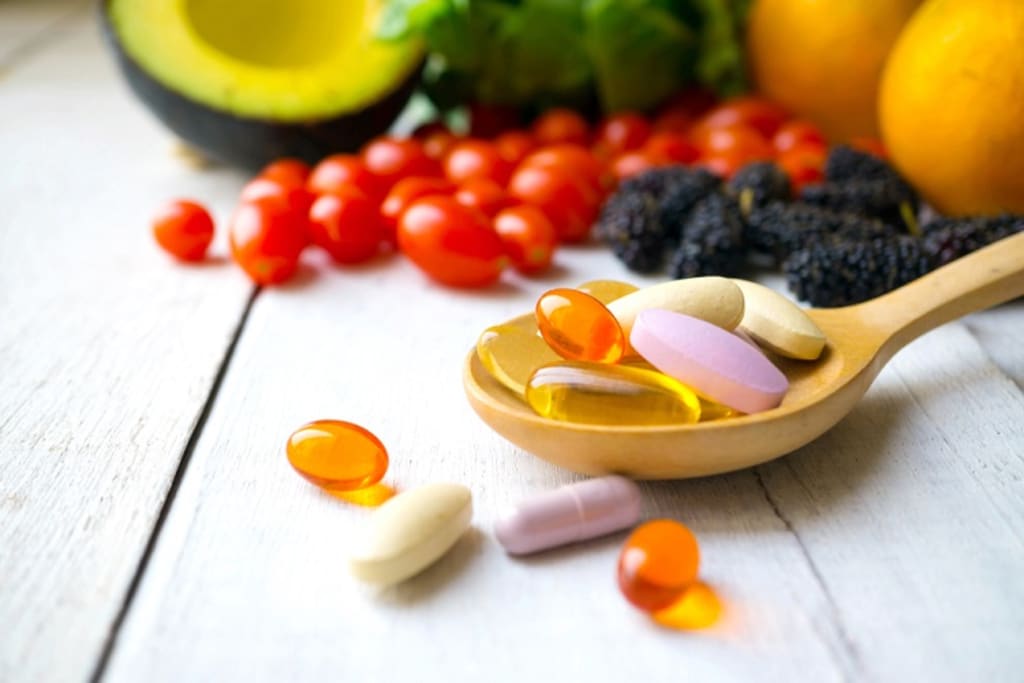
Vitamins are essential for the overall growth and development of our body. Vitamins play a vital role in regulating various functions in our body like digestion, immunity, and metabolism. Vitamins are categorized into 13 types that comprise of vitamins A, D, C, E, K and B vitamins like folate and riboflavin. If you are above 50, you should have a clear understanding about all the vitamins that you should be taking to ensure your good health and wellbeing.
The best way to fulfil the required number of vitamins in your body is to include variety of foods rich in vitamins and if this doesn’t meet your need, you may need vitamin supplements. Your doctor will be the right person to guide you on taking supplements.
What are Vitamins?
Vitamins are natural compounds that are required by our body in small amounts to maintain normal functioning of our body. Our body requires vitamins through diet as our body is not capable of producing them at a faster rate to meet the daily requirements.
Vitamins are basically natural elements of foods that exist in small amounts. When there is lack of vitamins in our diet, it results in deficiency of the respective vitamin.
Why vitamins are important for people aged above 50
Vitamin deficiencies can result in serious chronic health ailments. Here are some of the best vitamins we can recommend for people aged above 50.
-Vitamin B2 –Riboflavin
Deficiency of this vitamin results in symptoms fissures, cracks, sores at corners of lips and mouth, photophobia, anxiety, fatigue, dermatitis, appetite loss and conjunctivitis etc.
Sources
Soybeans, mushrooms, whole wheat, almonds, liver, eggs, yogurt, spinach etc
-Vitamin B3- Niacin
The lack of vitamin B3 leads to symptoms like stomatitis, diarrhea, dermatitis and dementia.
Sources
Peanuts, mushrooms, corn, brown rice, sweet potato, green leafy vegetables, barley, celery, carrots, potato, lentil, chicken meat, salmon, peaches etc.
-Vitamin B5
The deficiency occurs in rare cases. It occurs mostly in cases of malnutrition wherein the person may notice tingling of his/her feet.
Sources
Lentils, whole meat, split peas, broccoli, sweet potato, cauliflower, squash, liver, strawberries, sunflower seeds etc.
-Vitamin B6
Deficiency of this vitamin leads to symptoms similar to that of vitamin B2 deficiency and other symptoms like depression, irritability, confusion, insomnia, muscle movement problems, anemia etc.,
Sources
Whole wheat, , green leafy vegetables, , potato, banana, trout, spinach, brown rice avocado, , , sunflower, salmon, tomatoes, lima beans, garbanzo beans, bell peppers, chicken meat, peanut butter, seeds tuna, walnuts etc.
-Vitamin B9
Folate is found naturally in different foods. Insufficient folate results in defects in neural tube and leads to cancer. You may also notice weakness, anemia, weight loss, diarrhea etc.
Sources
Green leafy vegetables, broccoli, spinach, whole grains, baked beans, , avocado, peanuts, lettuce, citrus fruits, black eyed peas, tomato juice, papaya, organ meats, asparagus, Brussels sprouts, green peas, banana
-Vitamin B12
Deficiency of Vitamin B12 results in symptoms like sprue, anemia and neurological problems.
Sources
Fortified cereals, trout, live, haddock, egg, salmon, and tuna.
-Vitamin C
Deficiency of Vitamin C includes lethargy, hair loss, dry skin and hair, tissue swelling, anemia, bone fragility, dry eyes, bleeding gums etc.
Sources
Guava, kiwi, orange, grapefruit, Brussels sprouts, strawberries, papaya, broccoli, cantaloupe, sweet potato, pineapple, bell pepper kale, lemon juice, parsley, cauliflower
-Vitamin H
Although the deficiency of Vitamin H is quite rare, remember, consumption of raw egg whites for a prolonged period can lead to vitamin H deficiency.
Sources
Green leafy vegetables, whole grain breads, raspberries, carrots, papaya, salmon, eggs, most nuts, avocado, cauliflower, banana
-Vitamin B1
The symptoms related to deficiency of Vitamin B1 are nausea, swelling, rapid heart rate, anorexia.
Sources
Sunflower seeds, lettuce, mushrooms, navy beans, peas, lima beans, eggplant, Brussels sprouts, whole wheat, lentils, soybeans, asparagus, pinto beans, spinach, black beans, tuna, tomatoes.
-Vitamin A
Vitamin A is an essential component for normal production of cells, vision, and reproductive function. You can get vitamin A from fish, organ meats, milk products, spinach, broccoli, sweet potatoes etc.
How many vitamins?
The vitamins are categorized into two categories-
Fat soluble
Fat soluble are generally absorbed with the help of fats in our intestinal tract. The chances of getting accumulated in our body are higher in case o fat soluble vitamins and thus result in hypervitaminosis that are actually water soluble vitamins.
Water soluble
Water soluble vitamins get dissolve in water and get excreted from our body to the extent that urinary output is the main predictor of consumption of vitamin. As they aren’t stored in our body, you need daily intake of these vitamins. Different types of water soluble vitamins are produced by bacteria.
The vitamins are normally categorized based on their solubility in water or lipids.
Are vitamins supplements good or bad?
Well, most of us do not get enough vitamins through food that we eat, which is because we do not go for a healthy diet. In case you are having a balanced and nutritious diet, still sometimes our body lacks in one or other type of vitamins as vitamins are not produced in our body.
Whether you should you take vitamin supplements or not is something that may worry you. You can consult your doctor as your doctor can examine you and check if your body needs a particular vitamin, which you make not get from daily diet. Although getting enough vitamins through food is always recommended, but if your body needs vitamins in higher amounts then supplements can be a substitute.
In case your doctor suggests you some vitamin supplements, you should take the right dose. Do not opt for self-medication without knowing which vitamin you need to fulfil the requirement of vitamins. This can lead to serious health problems. While vitamin deficiencies can lead to severe health problems, excess amount of a specific vitamin is equally harmful for your body.
You may need to take vitamin supplements at one or the other phase of your life but be cautious about the safety related to consuming a supplement as it should be taken in recommended doses. Try not to switch to supplement unnecessarily when the vitamin needs of your body can be met through vitamin rich foods. You can get yourself examined to know the levels of vitamin deficiencies to make up for the deficiencies.





Comments
There are no comments for this story
Be the first to respond and start the conversation.